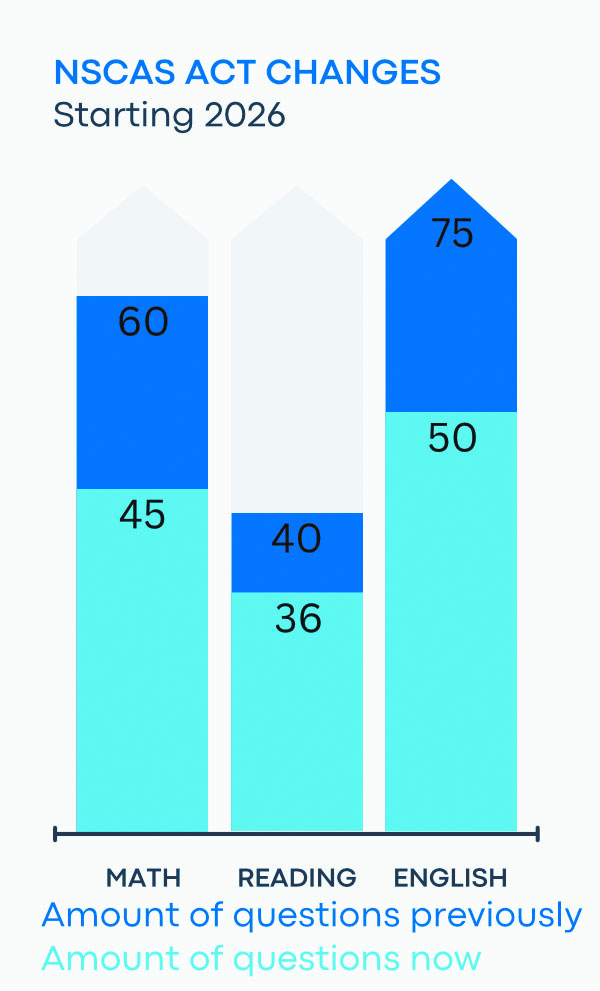On January 14 of 2025, Nebraska Senator Jane Raybould proposed “Change provisions relating to the minimum wage under the Wage and Hour Act,” more commonly known as LB258. This is a legislative bill that plans to decrease the minimum wage for workers ages 14 to 15 starting next January, and increase the training wage for workers ages 16 to 18.
In November of 2022, Nebraskans voted to increase the state minimum wage to $15 per hour by the first of January, and allow it to meet the needs of inflation and growing costs in the economy. However, LB258, instead of having minimum wage be $15, would make it $13.50 for workers under 18. Mathematically, this is a 10% decrease.
Senator Raybould did not respond to queries for an interview. However, in an interview she conducted with 1011 Now, she said that she hopes the bill will help small businesses and others that may have a hard time making ends meet, stating that these struggles and costs could be passed onto consumers.
“You have to always balance it out to make sure that we maintain the economic vitality and vibrancy and economic growth in our state without falling off and creating a cycle of cost increases that are so much harder for Nebraska families to afford,” Raybould said.
Currently, LB258 has not been officially passed. Out of the nine steps required to get the bill passed, it has reached the seventh step, “Final”. This means that the bill is currently being read aloud before the legislature. At this point, the bill can either be advanced, or indefinitely delayed. Other states that have also lowered minimum wages for workers ages 14-15 are Iowa, Arkansas, New Jersey, and New Hampshire.
“I feel like kids, like teenagers our age, we just want money,” junior Madeleine Walter said. She plans on becoming employed as a lifeguard this upcoming summer. “So there’s going to be a lot more people who are going to be hiring younger people because they want to pay less.”
The bill has been met with some criticisms. According to Nebraska Public Media, some believe the bill is a form of age discrimination. On the other side of the coin, some believe the bill is perfectly reasonable. The Nebraska Department of Education states that, in accordance with current Child Labor Laws, workers ages 14-15 years old are only able to work three hours on a school day with no more than 48 hours in a week. The argument is that these workers should be paid less because they work less.
“If I get less money, then I won’t be able to pay for my car or my cheer bill or anything like that,” sophomore Mackenzie Shafer said. She is currently employed at McDonald’s. “If I get less money than I do now, I just need to find a better job.”
According to the Nebraska Examiner, Raybould filed a conflict of interest form to the Nebraska Accountability and Disclosure Commission. This is because Raybould’s family owns multiple grocery stores across Nebraska.
“…the cap on the increases in 2027 would also keep the projected minimum wage increase to a more reasonable and predictable one,” Raybould wrote. “This legislation would impact more businesses besides our grocery stores, including, but not limited to, all retailers, restaurants, detasselers, day care facilities and other small and independent businesses in our state.”
Walter, as a student that is hoping to become employed soon, expressed frustration with the bill. She believes it would not be fair to her fellow employees.
“I feel like it will make me feel unfair,” Walter said. “It will make me feel maybe a little guilty, you know, if I’m getting my wage and a friend that works, if they’re younger than me, they’re getting paid less while doing the exact same thing, it just feels unfair.”
Shafer has similar sentiments. She believes the bill should not be passed.
“For me, I’m 15, almost 16, but I feel like, for someone like me that’s starting to get into jobs and handling money by themselves, they shouldn’t decrease that and lower that because you’re taking away the independence [of teenagers]. Just don’t do it.” Shafer said.






![Supervising. Monitoring the girls restroom, Instructor Rebekah Sidzyik [LEFT] and instructor Shelly McCarty
[RIGHT] make sure students are safe in the restroom area and that they get to class on time. All teachers have to
monitor the restrooms starting this school year. "Well, it’s not what I got all my degrees for, but you know safety of
students is a probably tied with educating them so if things are unsafe in the bathroom them we probably should
be in there," Sidzyik said.](https://beaststudentmedia.org/wp-content/uploads/2025/09/IMG_0607-1200x800.jpg)